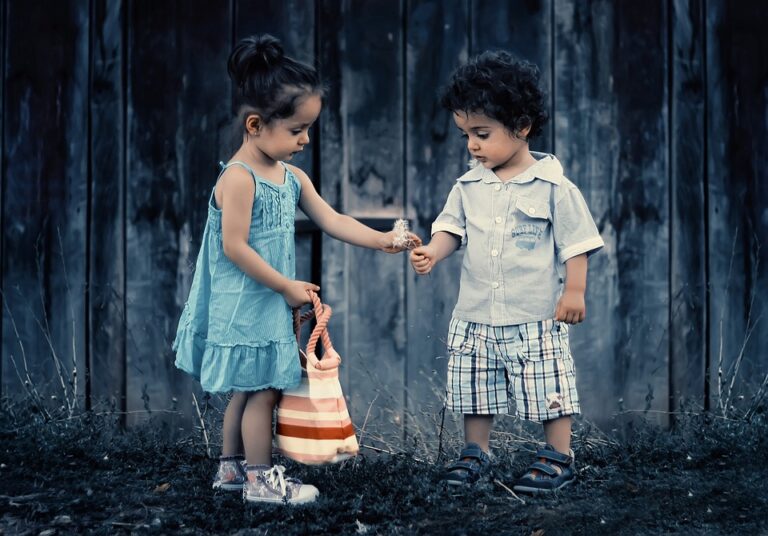
Navigating Growth: The Journey of Cognitive and Emotional Development in Children
As parents, caregivers, and educators, one of our most vital roles is to support children’s growth and development, both cognitively and emotionally. From the moment they are born, children embark on a remarkable journey of discovery, as their brain develops and their emotional intelligence evolves. Understanding and assisting them through this journey is crucial for their overall well-being and success in life.
Cognitive development refers to the process by which a child acquires knowledge, learns to think, reason, problem-solve, and make sense of the world around them. Jean Piaget, a renowned developmental psychologist, identified several stages of cognitive development, each building upon the previous one.
During the first two years of life, infants engage in sensory motor exploration, using their senses and movements to learn about their environment. They develop object permanence, the understanding that objects exist even when out of sight. As they enter the toddler stage, their cognitive abilities expand, and they engage in pretend play, demonstrating symbolic thinking.
In early childhood, from ages 2 to 7, children’s thinking becomes more intuitive and imaginative. They develop language skills, engage in pretend play, and begin to understand concepts like number, time, and causality. Children at this stage are eager learners, constantly asking “why” and seeking answers.
During middle childhood, which spans from ages 7 to 11, concrete operational thinking emerges. Children can think logically and understand the conservation of volume, mass, and number. They are able to classify and group objects based on different criteria. Their memory and attention span improve, allowing them to engage in critical thinking and problem-solving more effectively.
Finally, during adolescence and beyond, children enter the stage of formal operational thinking. Abstract reasoning, hypothetical thinking, and deductive reasoning become possible. Teenagers develop a sense of identity, challenge authority, and explore their own beliefs and values.
While cognitive development unfolds, children’s emotional development is just as important. Emotional intelligence encompasses the ability to recognize, understand, and manage one’s own emotions, as well as recognizing and empathizing with others’ emotions. This capacity plays a significant role in children’s social interactions, decision-making, and overall well-being.
During early childhood, children become increasingly aware of their emotions, expressing joy, sadness, anger, and fear. They also begin to recognize and respond to others’ emotions. As they grow older, children develop empathy, the ability to understand and feel what others are experiencing. They also start to regulate their emotions, finding healthier ways to express and manage them.
As children enter adolescence, their emotional development takes center stage. The roller-coaster of emotions, mood swings, and identity exploration characterize this stage. With guidance and support, teenagers learn to develop emotional resilience and navigate the challenges they face.
Navigating the journey of cognitive and emotional development requires a holistic approach. Parents and caregivers play a vital role in providing a nurturing and stimulating environment that supports cognitive growth. They can facilitate learning through play, reading, and engaging in stimulating conversations. Creating opportunities for exploration, critical thinking, and problem-solving encourages children’s intellectual development.
In terms of emotional development, parents and caregivers should encourage open communication, validate children’s emotions, and model healthy emotional regulation. Teaching strategies for managing stress, conflict resolution, and empathy cultivates emotional intelligence. Engaging children in activities that promote self-reflection, such as journaling or mindfulness practices, can also be beneficial.
Furthermore, educators play a crucial role in supporting both cognitive and emotional development in children. They can provide age-appropriate and stimulating learning environments, tailor instruction to individual needs, and promote positive social interactions among children. Incorporating activities that encourage critical thinking, creativity, teamwork, and emotional expression enhances children’s overall growth.
In conclusion, the journey of cognitive and emotional development in children is a remarkable process filled with growth, learning, and self-discovery. By understanding the different stages of development and providing appropriate support, parents, caregivers, and educators can help children navigate this journey with confidence and thrive in all aspects of their lives.
Younger Glowing Skin - Discover Ancient Ayurvedic Secrets at DoctorIndiaHerbals.com
Explore One of the Largest Collections of Dinosaur-Themed Toys, Games, Gifts, Decor, and More at DinoAvenue.com
Discover Premium Design Elevator Shoes for Men and Women at LondonCobblers.com
Discover Hidden Family Destinations for Vacations at Places.Travelz.io
Find the Best Deals on Airfare and Hotels with Advanced Metasearch Technology at www.Travelz.io
30% off on Kids items
STEM science experiments for Kids
Premium Science Toys and experiments